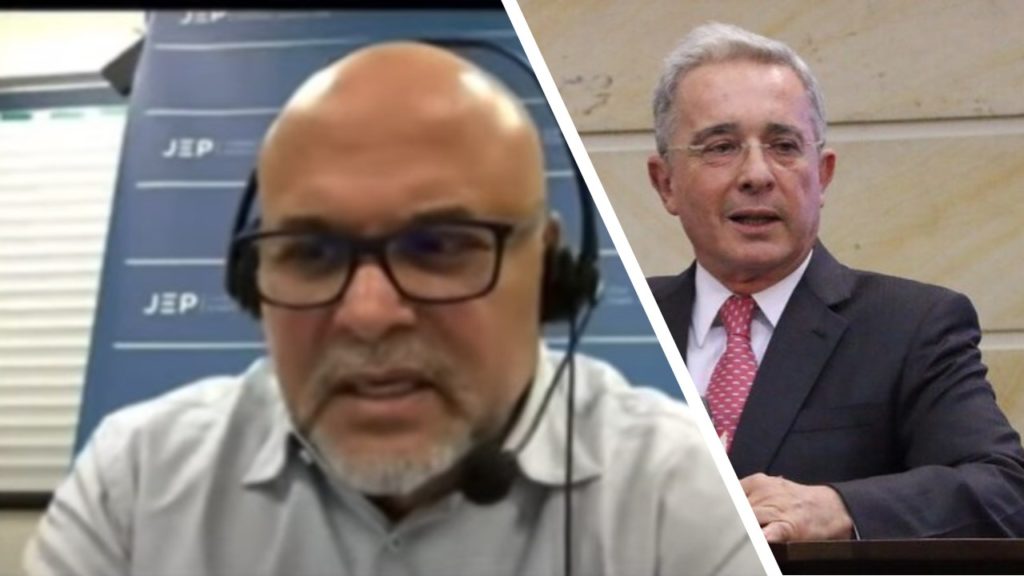
The Inter-American Committee on Human Rights (IACHR) concluded its five-day visit to Colombia this Friday afternoon, April 19, with a meeting with the Colombian government. President Gustavo Petro did not attend, despite its being on his agenda, which has raised all kinds of speculation among the media once again for the head of state’s repeated failures to comply with his agenda. Instead, the meeting was chaired by the Minister of Foreign Affairs, Luis Gilberto Murillo, and the Minister of the Interior, Ivan Velasco.
The work of the IACHR began on Monday and the human rights delegates have had a full agenda of events and meetings. They also visited various regions of the country, where they held meetings with representatives of civil society and victims of the armed conflict, as well as with mayors and politicians of various political persuasions.
During the first three days of the visit, the Commission delegation held meetings with various authorities and entities in Bogota, Cali, La Guajira, Necocli, and Tumaco. In the Colombian capital, the IACHR met with Vice President Francia Marquez, Mayor Carlos Fernando Galan, and officials from the Ministries of Foreign Affairs, Justice, Interior, Environment, and Finance, as well as with military and police victims of the armed conflict, trade unions, and business associations.
There were also dialogues with diplomatic missions of European Union countries and organizations that accompany the implementation of the 2016 Peace Agreement, the Total Peace policy, as well as people from civil society on the situation of social leaders, indigenous peoples, and forced recruitment of children.
Yesterday, the delegates held meetings with congressmen of the pro-government Historic Pact and with former President Alvaro Uribe. It should be recalled that this five-day visit to Colombia is at the invitation of the State. The Commission delegation is led by the IACHR Chair, Roberta Clarke; the Second Vice-Chair and Rapporteur for Colombia, Jose Luis Caballero; Commissioners Stuardo Ralon and Arif Bulkan, and Commissioners Andrea Pochak and Gloria De Mees.
IACHR visited the territory of Colombia
After the first day, Monday, April 15, with a very political agenda and meetings with the Minister of Foreign Affairs, the Vice President, and representatives of Congress, the IACHR delegation held meetings with civil society organizations.
During their visit to Antioquia, Buenaventura, Santa Marta, and Puerto Asis, the delegation met with authorities, indigenous communities, Afro-descendants, peasants, women, migrants, LGTBIQ+ spokespersons, and journalists. These meetings were held to learn about the situation of these groups and the effects of the conflict.
The main objective of this mission of the CDIH is to verify on the ground (in loco) compliance with the peace agreements that the Colombian State signed with the extinct FARC in 2016. To this end, in addition to pluralistic meetings with the country’s political representatives, priority was given to visits to regions that have suffered the most virulent consequences of Colombia’s internal war.
Similarly, during their visit to Necocli (Antioquia), the human rights delegates were able to approach the situation of irregular migrants heading to the Darien region, to cross into Panama on their way to the United States.
Meetings with the government and the opposition
In the meeting with representatives of the coalition Pacto Historico, which supports President Petro in Congress, the political delegates expressed their concern for the “judicial persecution”, to which, they claimed, future candidates for the 2026 presidential elections are subjected.
The ruling party affirmed that state control agencies are politically persecuting figures such as Daniel Quintero, former mayor of Medellin; Carlos Caicedo, former governor of Magdalena; and Camilo Romero, current Colombian ambassador to Argentina. All of them are close to President Petro and aspiring to succeed him in two and a half years.
For his part, former president Uribe (2002-2010), handed over documents on his judicial process, to which he is subjected in Colombia for alleged witness tampering. Likewise, both Uribe and several members of his party, the opposition Democratic Center, expressed their concerns about the public order situation in several regions of the country and the worsening of the conflict.
“We gave the Commission extensive documentation on the issue of false positives. I will also send there a free version on paramilitarism (…) and the issue of the free version and my statement before the Prosecutor’s Office in Medellín will be added to it”, stated the former president.

See all the latest news from Colombia and the world at ColombiaOne.com. Contact our newsroom to report an update or send your story, photos and videos. Follow Colombia One on Google News, Facebook, Instagram, and subscribe here to our newsletter.

